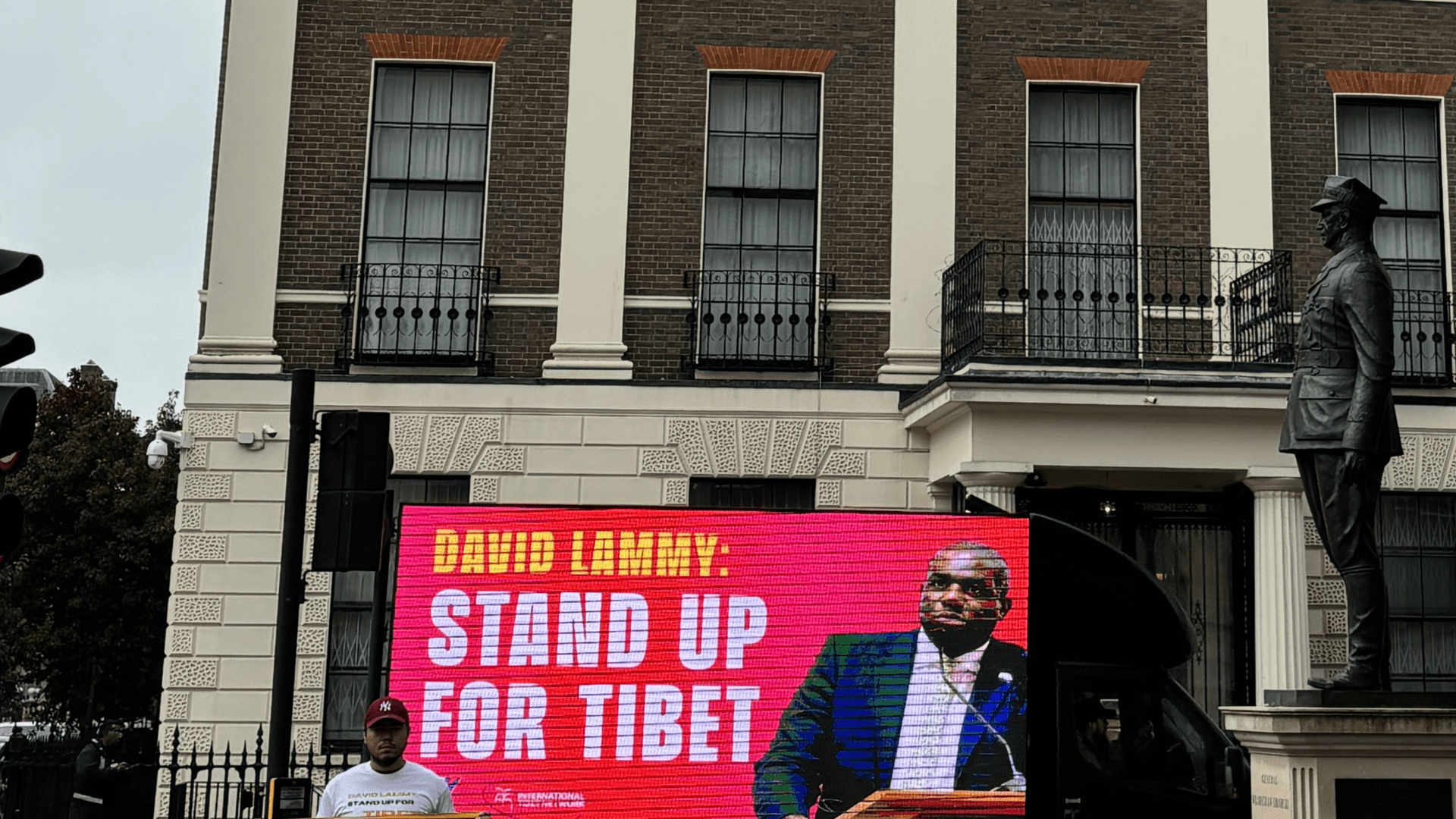
Tibet groups urge Lammy not to sell out Tibet
The Foreign Secretary is travelling to China this week in what is being reported as a ”reset” in UK-China relations
Tibet groups in the UK have urged Foreign Secretary David Lammy to press his Chinese counterparts on Tibet prior to his departure to Beijing this week. David Lammy’s trip to China, his first as Foreign Secretary, was announced last week.
In an open letter to the Foreign Secretary, Free Tibet, along with International Tibet Network, Tibet Action Institute and Voluntary Tibetan Advocacy Group UK, listed a series of key human rights concerns that he should raise. The groups also said that he should press Beijing to restart talks to address China’s 70-year occupation of Tibet and resolve Tibet’s status.
These priorities were spelled out clearly yesterday, with a digi van travelling around central London, accompanied by Tibet activists.
The van was seen by thousands of people as it visited the Chinese embassy, Downing Street and Parliament, as well as busy London landmarks such as Piccadilly Circus and Trafalgar Square. Among those who witnessed it were a group of Tibetans in Trafalgar Square who saw the van from afar and told the team that they were thrilled to see it and proud of those involved.
Messages displayed on the van highlighted the colonial boarding school system, which has separated around one million Tibetan children from their families, and the detention, disappearance and torture of peaceful Tibetan protesters, culminating a in clear message: “David Lammy: Take a Stand for Tibet.”
Few details of David Lammy’s schedule or priorities in China have been released since last week’s announcement. However, reports have indicated that key priorities will be job creation and investment as part of a wider “reset” in relations with China.
This has prompted fears among Tibetans, as well as other nationalities and communities such as Uyghurs and Hongkongers, that this could see the UK government return to the policies of the Cameron administration in the 2010s. This period, informally known as the “Golden Era” of relations between the UK and China, marked the last time a UK Prime Minister met the Dalai Lama, but also saw a more business-friendly relationship and less pressure on human rights.
The open letter spelled out the choice before Foreign Secretary Lammy and the UK government, concluding:
“The UK government’s stated policy towards the Chinese government is to cooperate where it can, compete where it needs to, and challenge where it must. Your meetings this week offer their own challenge: should you return to the UK with promises of jobs and investment but without taking a stand for Tibet, you will have sold out Tibetans and their human rights including those who are UK citizens.
“On the other hand, should you be bold, and seize the moment to speak out on Tibet and challenge China over its human rights abuses, it will show that this new Labour government can be a positive force for change and an example for other governments to follow.”

